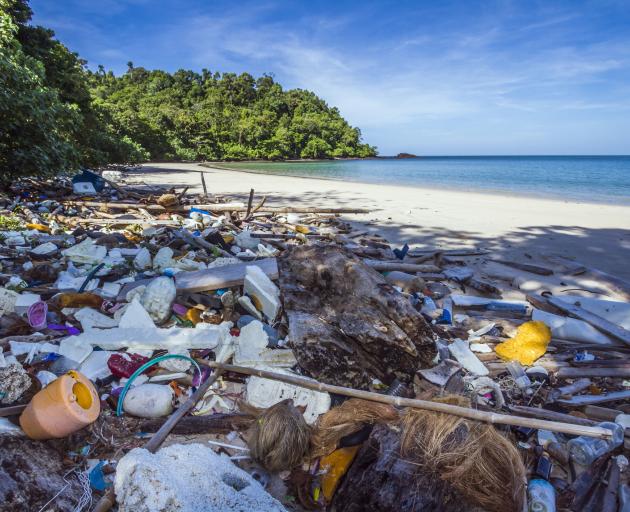
Chief executive John Brakenridge believed New Zealand was ''perfectly positioned'' to provide sustainable fibre alternatives - be it wool, flax, hemp or lyocell - to meet global consumer demand for more environmentally sustainable products.
A recent report by the International Union for Conservation of Nature (IUCN) showed synthetic textiles such as polyester - which were derived from fossil fuels - were the leading cause of ocean microplastic pollution.
Washing synthetic textiles in industrial laundries and households created primary microplastics through abrasion and shedding of fibres. Fibres were then discharged in sewage and wastewater and potentially ended up in the ocean.
Plastic particles released during the washing of synthetic clothing accounted for 35% of primary microplastic pollution in oceans, compared with only 2% from the cosmetics industry.
''Every time you wash synthetic clothing, you release 1900 plastic particles into the environment. These particles will never break down, whereas natural fibres, once disposed of, will biodegrade within months,'' Mr Brakenridge said.
Interest in ethically sourced, sustainable wool fibre was at an ''all time high'' and a key driver had been consumers demanding sustainable apparel options, he said.
One example was the meteoric rise of innovative shoe company Allbirds, co-founded by former All Whites captain Tim Brown, which had just sold its millionth shoe and had a business model based on natural fibre innovation.
Ercole Botto Poala, chief executive of Italian textile manufacturer Reda, said the millennial consumer did not just want to buy a product or a brand, they wanted to buy a story and an experience that respected their environmental philosophy.
''Honestly, I think today is one of the best moments [for wool],'' he said.
IUCN director general Inger Andersen said the ''plastic revolution'' had come at a cost. There were 9.5 million tonnes of new plastic waste flowing into the ocean each year.
''This is impacting our planet's precious biodiversity and damaging the fragile ecosystems upon which we all depend.''











